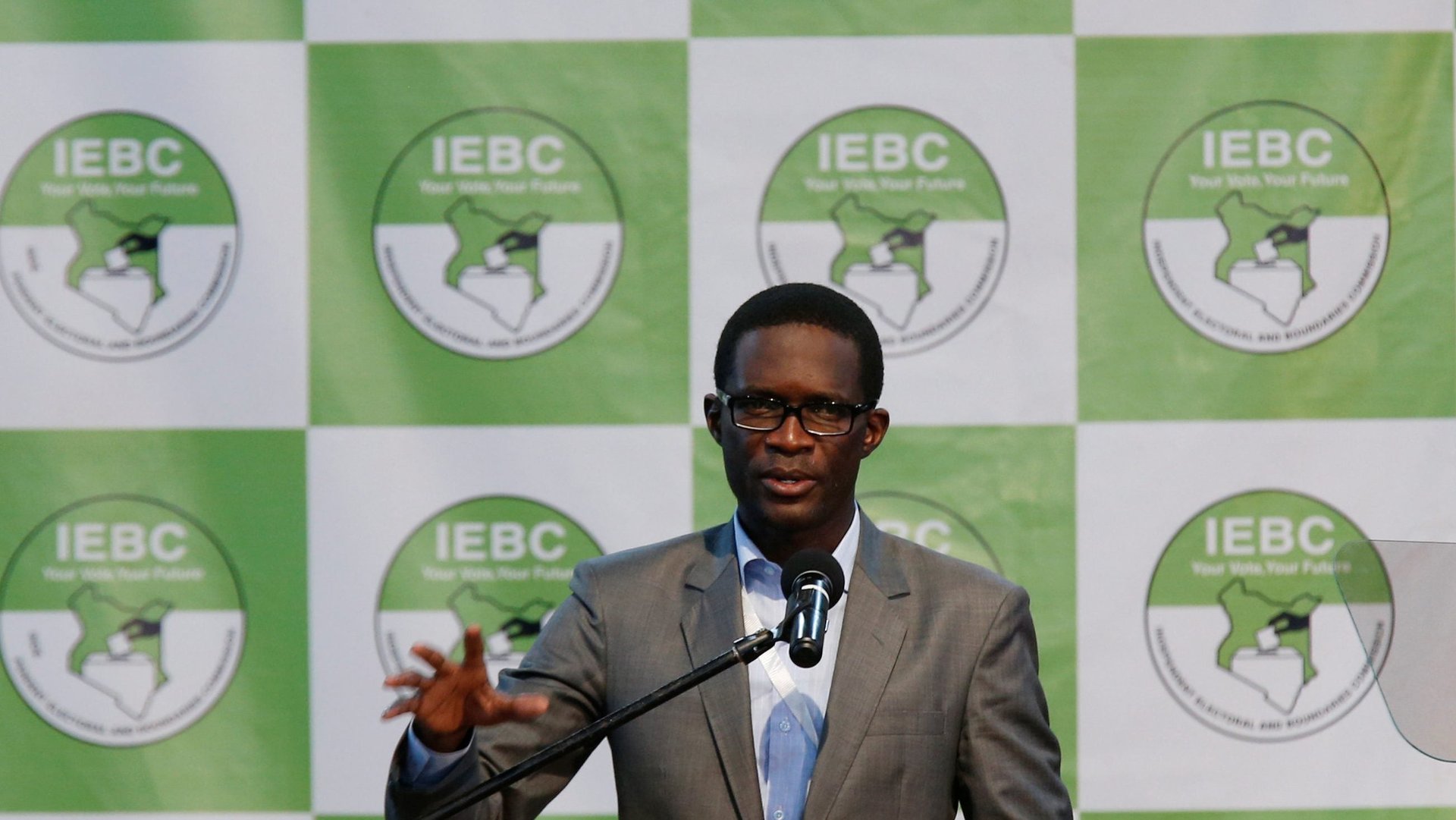Kenya’s election redo will cost taxpayers an extra $117 million
Kenya is set to hold another expensive election—with taxpayers expected to foot the $117 million needed for the upcoming presidential poll.


Kenya is set to hold another expensive election—with taxpayers expected to foot the $117 million needed for the upcoming presidential poll.
Ezra Chiloba, the chief executive officer of the Independent Electoral and Boundaries Commission (IEBC) said the October election will cost about 12 billion shillings, most of which will go towards facilitating human resources and logistics. In an interview with The EastAfrican newspaper, Chiloba said they will present the budget to treasury officials this week.
The announcement comes barely a month after Kenya held one of Africa’s most expensive elections. The Aug. 8 general elections cost taxpayers a whopping $480 million, with the largest allotment going to the electoral commission. The IEBC used over $413 million to hire personnel, procure election materials, conduct awareness campaigns, as well as collecting and transmitting the results of votes for the presidency, national assembly, female representatives, governors, senate, and county assembly members.
But after the opposition leader Raila Odinga challenged the results of the polls, Kenya’s supreme court annulled the outcome of the presidential election on Sept. 1 and ordered a fresh vote in 60 days. Incumbent president Uhuru Kenyatta had won over 54% of the now nullified vote, defeating Odinga with a margin of 1.4 million votes. As the new election date of Oct. 17 looms closer, the overall amount needed for the presidential poll might even be higher if one factored the amount other government institutions like the police and intelligence services will need to ensure that everything runs smoothly on election day.
Following the annulment, many observers are now wondering if the beleaguered electoral commission will be able to hold a free and credible election. Internal wrangles within the commission have surfaced over the last few week, threatening to derail the Oct. 17 elections. A memo alleged to have come from the commission’s chairman Wafula Chebukati to the CEO Chiloba was also leaked online. In it, Chebukati demands Chiloba to explain why they purchased satellite phones that never worked, why hundreds of polling stations didn’t send results of the presidential election to the national tallying center, why an account created in his name was used to log into the elections management system, and why some election result forms lacked key security features.
Some IEBC commissioners have distanced themselves from the memo, but Chiloba has said they were “looking at the issues raised in the memo and we will respond in the interest of the public.”
Election campaigns, which usually cost millions of dollars, have also hit the ground running. The opposition NASA Coalition has even resorted to public fundraising in order to fund its campaign—a move that president Kenyatta said showed that they previously used governors aligned with their alliance to steal public money and fund campaigns.
However, the biggest disruption to the election could come when the court publishes its full decision with details of its findings. If found culpable, Chiloba has said he will resign, a step that might ground the operations of the commission and its ability to carry out its task on time. But for now, the commission is refusing to compromise despite increasing criticism.
“I honestly believe, save for the setting aside of the presidential elections, people will look back and say it was the best managed election that was nullified by the courts,” Chiloba said. “They will ask why this happened. How come everyone got it so wrong? It only points to one thing, that we did it right.”